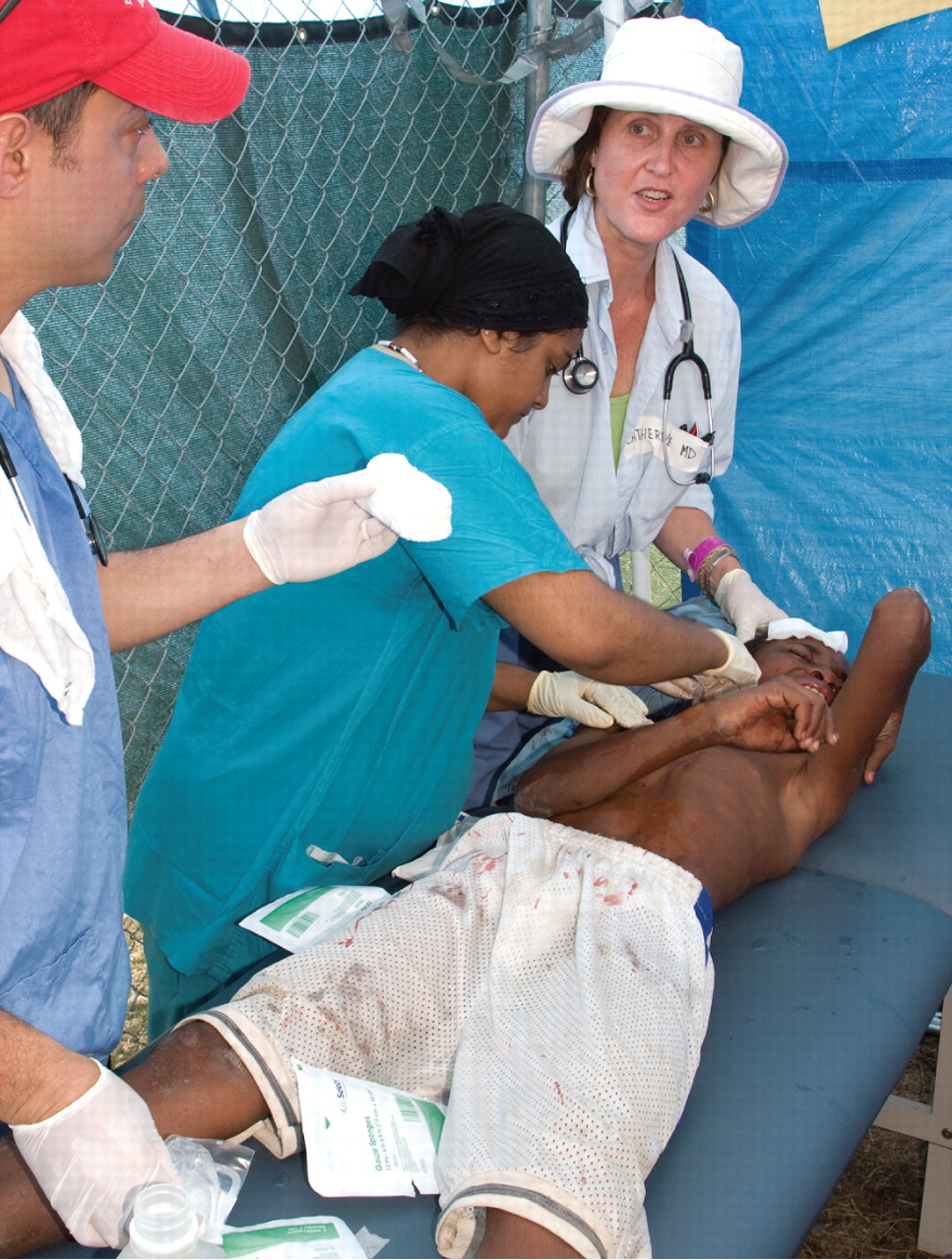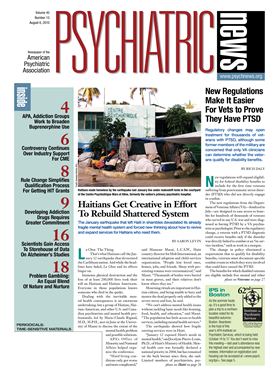Psychiatrist Catherine May, M.D., of Washington, D.C., was one of many American physicians who traveled to Haiti in the months after the January earthquake.
May is in private practice and is also a clinical associate professor of psychiatry at George Washington University School of Medicine. She is a former Washington Psychiatric Society president and a current Assembly representative.
May has trained in both psychiatry and emergency medicine. She spent a week in April as director of the emergency room in a makeshift tent hospital at the Port-au-Prince airport. May was part of a team run by Medishare, an organization based at the University of Miami that has worked in Haiti for many years.
She worked with families who had lost children and other relatives, she said. “People were overwhelmed, unable to cope,” she recalled. “They often had something close to conversion disorders.”
In June, she spent another week as chief medical officer at a different, somewhat more permanent location. She performed triage assessments at the hospital gates.
Her work involved as much primary care medicine as psychiatry. When psychiatrists are involved in routine medical care, they can improve access to psychiatric care for the same patients, she believes.
Her work also drew on her organizational skills, she said in a recent interview. For instance, she worked with U.S. and Haitian-American volunteer clinicians to help them integrate local Haitian medical staff into the hospital routine.
The hardest part of her job was helping the foreign volunteers cope with the difficulty of delivering care in a disaster zone.
“They were used to providing high-level Western medical care, but that's hard to do there,” she said. “They felt terrible when they failed to save a patient they would have saved in a U.S. hospital. Pediatric deaths happened with alarming frequency and were extremely difficult to handle.”
May encourages psychiatrists serving in disaster areas to work closely with primary care teams in clinical settings, based on her experience working in communities hit by Hurricane Katrina five years ago.
“Many people who present in a medical clinic after a disaster with a primary medical complaint will screen positive for significant psychiatric symptoms,” she said. “By working alongside primary care colleagues, psychiatrists can put more patients in front of more doctors.”
When patients are seen in the course of treatment for a medical complaint, they won't be labeled as having a psychiatric illness, she said. Resilience and coping skills can be reinforced.
These integrated response teams can adapt to the needs of a given population, and when necessary, psychiatrists can deliver direct medical care, she said. “We all went to medical school, and we still have a skill set that, even if it has not been used in a while, can be a valuable resource.”


